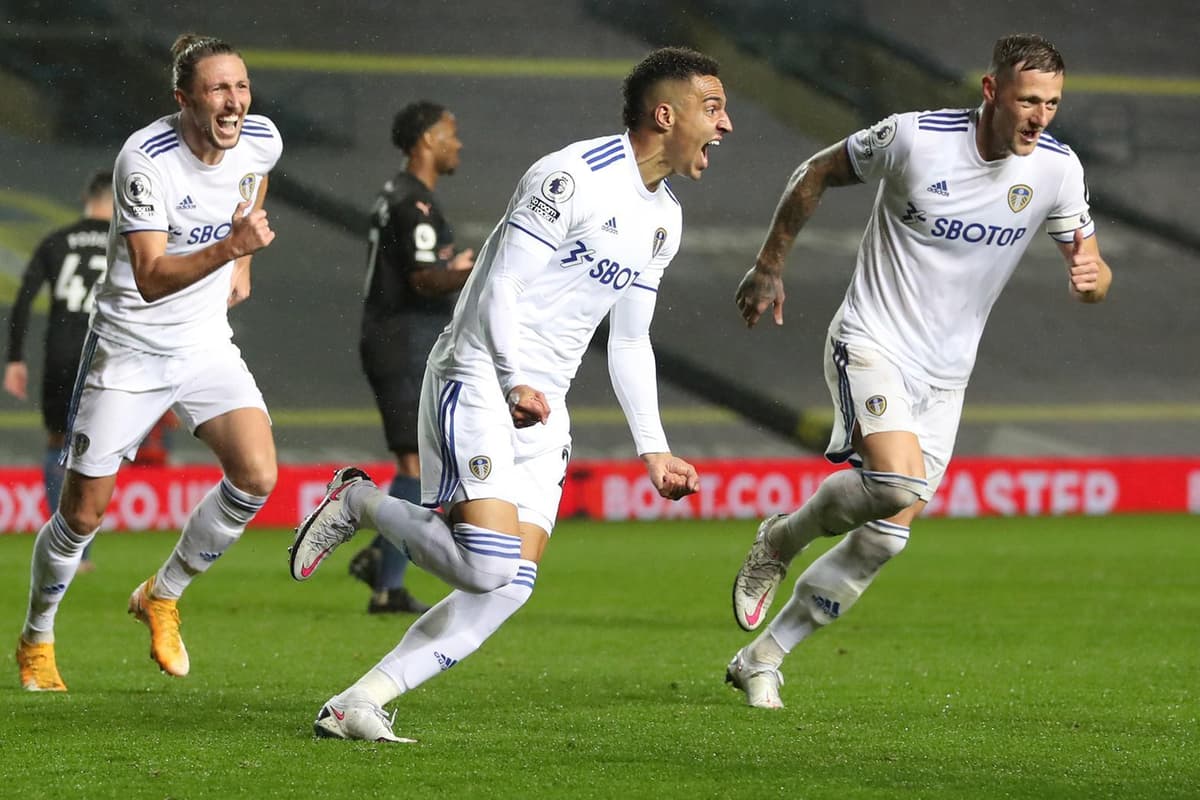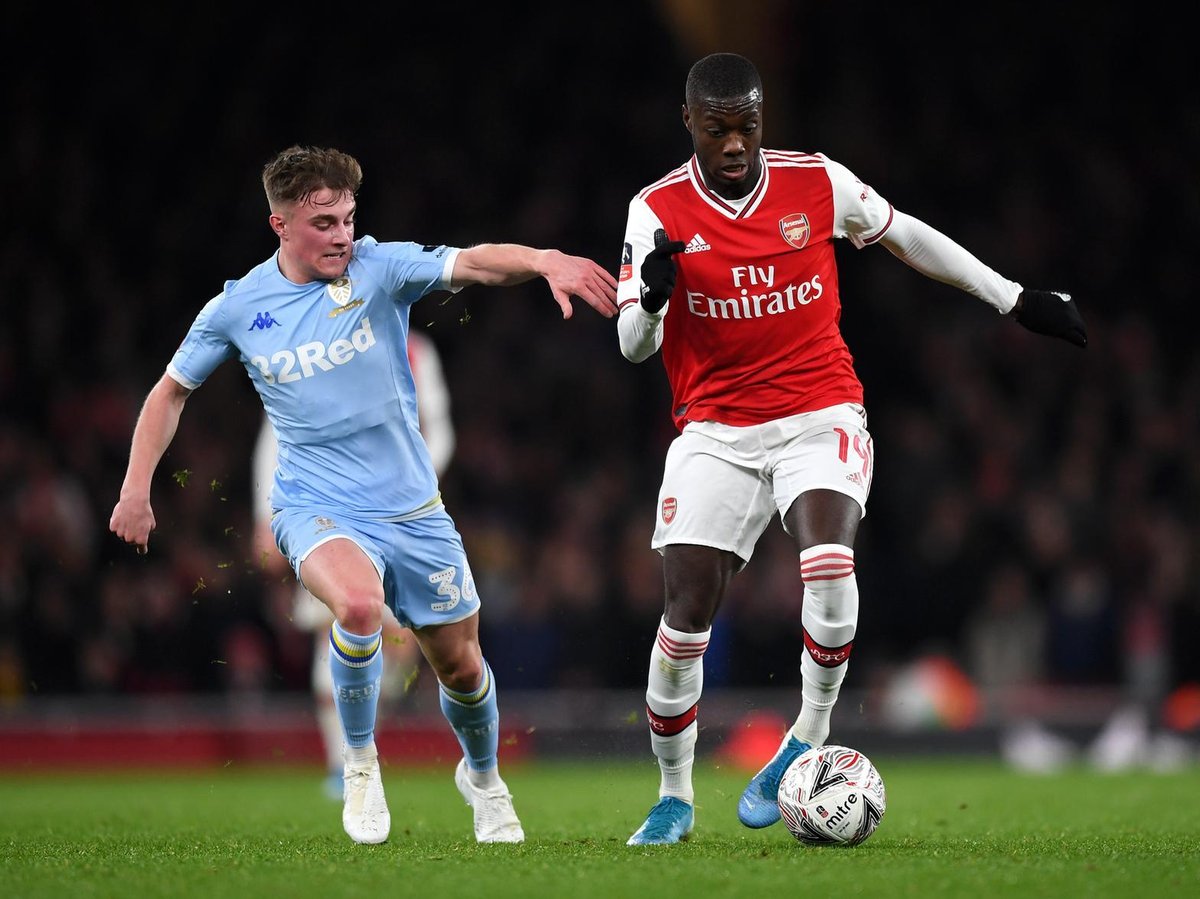And so, for Victor Orta,
a holiday in the Lake District or a weekend in Whitby. That was what he promised himself when October arrived, provided Leeds United’s transfer window went well. Some peace and quiet in a low-key setting, far away from the centre of the universe.
Recruitment is best judged with hindsight and Orta knows that better than anyone. One minute Mateusz Klich is a dud. The next he is a game away from a 100th league appearance for Leeds, a snip at £1.5 million. Then you have Jean-Kevin Augustin, the right type of striker in so many respects but liable to cost the club heavily for the 49 minutes of football he gave them on loan last season. “I play Football Manager,”
Orta once said, “but the reality is very different.”
This window felt as close to Football Manager as Leeds have ever been, or at least since the days when Peter Ridsdale gave the impression that a chairman who ran out of money could reboot the computer and start a new game. Through the doors came two Spain internationals, one of them that country’s incumbent No 9. A German with three caps was tempted in too and although
Leeds backed out of the signing of Michael Cuisance from European champions Bayern Munich, they finished the summer with a £17m splash on Rennes’ Brazilian winger Raphinha. A good window? It feels like one, if good is a word that does their business justice.
It required money, of course, and nobody would pretend that Leeds have tried to shop economically. Between four new signings and the deals done to make Helder Costa and Illan Meslier permanent squad members, the weeks from July to October have accounted for the thick end of £100 million. Their old transfer record, untouched for 20 years, has been equalled or beaten three times. The first tranche of Premier League cash is spent and gone but the expenditure is not indicative of an uncontrolled spree.
Marcelo Bielsa asked Leeds to keep the numbers down and they did: big fees on a small pool of players, ensuring that the dressing room neither changed beyond recognition nor stood still. Bielsa is averse to excessive strength in depth but at the start of his third season in charge, his squad has a more natural balance to it.
He has four centre-backs, three of them proven, and no need to experiment in that position when selection issues arise. He has Rodrigo in his camp and that, in part, is helping to make a monster of Patrick Bamford’s form. Raphinha provided the extra wide player Bielsa was looking for and came into focus over the weekend with no sign of Manchester United making Dan James available. Orta’s scouting network in Europe has earned its keep.
The frustration over the failure to sign Cuisance is that the 21-year-old’s presence and versatility would have taken some pressure off Klich, answering the question of what Bielsa might do if and when the Pole cannot play. That is the area where Leeds look short and there was something of a succession plan in play with the bid for Cuisance. By the time he turns 25, Klich will be 34. But in a summer when so much money has been spent, there was no sense in risking £20 million on a player whose medical threw up problems.
There were changes in tack at Elland Road as the window went on. Bielsa had no intention at first of bringing in a spare central defender but revised his thinking after a flat performance by a weakened team against Hull City in the Carabao Cup. Leeds worked on Dinamo Zagreb’s Josko Gvardiol, an 18-year-old prospect with a huge reputation, but went calling for the more experienced Diego Llorente after Gvardiol chose to join RB Leipzig. An extra midfielder came onto the agenda with Adam Forshaw still to return from injury but Cuisance’s medical killed a transfer which was virtually done. For all the attention on Rodrigo De Paul, at no stage did Bielsa ask Leeds to push the boat out and get a deal with Udinese done. Cuisance was the midfield target they attacked with intent as the window entered its final week.
Orta likes to keep long lists for each position, alternatives Leeds can move for quickly, and it was in that way Robin Koch materialised a week after Brighton & Hove Albion rejected a third offer for Ben White. The club were also happy to hedge their bets with wingers: making a low offer for Rangers’ Ryan Kent, waiting to see if Manchester United opened the door to James but mobilising in time to sign Raphinha. Orta has been in and out of the continent — spotted in airport lounges in the early hours of the morning — but to an extent, the tension eased once Rodrigo and Koch arrived before the start of the season. Those were the priority positions. Those were the areas where Leeds
had to do business, and where Bielsa wanted decisive progress to be made. After that, they sat tight for three weeks.
Their strategy created a blend in the nature of the players they were buying. Rodrigo and Llorente are at or close to their peaks, far beyond the days where people spoke about their potential. Costa falls a little closer to the middle of the spectrum, visibly improving, and in Meslier, Koch and Raphinha, Leeds have three footballers who could conceivably be first choice seven or eight years down the line. All of the new signings are tied to long contracts, available to Bielsa and whoever follows him as the club’s next head coach.
Leeds will know soon enough if this window has worked. As Orta often says, the impact of transfers is not as simple as the money you pay or the analytical data you amass. There is a personal factor too: who settles well, who adapts to life with Bielsa as their head coach, which of the foreign imports feel happy in England (in a way Samuel Saiz, for example, did not) and who ultimately comes good.
But the investment has been full-blooded this summer. Leeds invaded the market in the way clubs do when survival in the Premier League is the least of their ambitions. Orta, with the ups and downs of recruitment in his head, tries not to count chickens. But he can disappear to the countryside with confidence that this egg will hatch.



